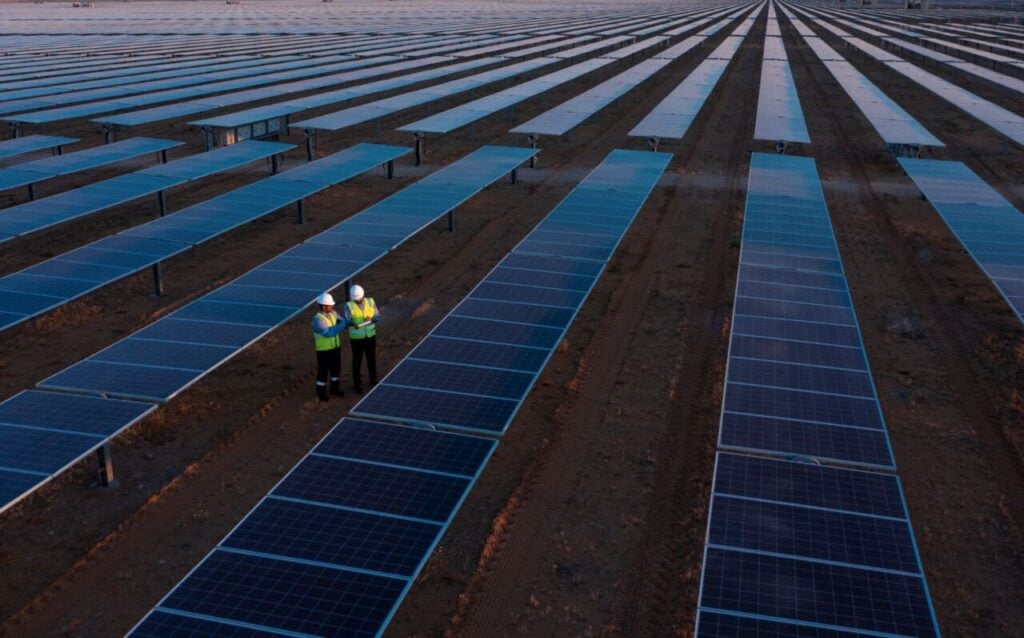
The European Bank for Reconstruction and Development (EBRD) has provided US$142 million in financing for the construction of a 1GW solar and 1.3GWh battery energy storage system (BESS) portfolio in Uzbekistan.
The portfolio consists of two solar and storage projects through a special-purpose vehicle (SPV) that will be majority owned by Saudi developer ACWA Power and co-owned by Japanese investors Sumitomo Corporation, Shikoku Electric Power Company and Chubu Electric Power Company.
Try Premium for just $1
- Full premium access for the first month at only $1
- Converts to an annual rate after 30 days unless cancelled
- Cancel anytime during the trial period
Premium Benefits
- Expert industry analysis and interviews
- Digital access to PV Tech Power journal
- Exclusive event discounts
Or get the full Premium subscription right away
Or continue reading this article for free
The financing from EBRD will consist of two senior secured loans. The first loan, of US$61 million, is for the development of the ACWA Power Sazagan Solar 1, which will have a combined capacity of 500MW for solar PV and 668MWh BESS. The project will be built in the southeastern region of Samarkand.
The second loan, of US$81 million, is for the development of the ACWA Power Sazagan Solar 2, which will have the same capacity as the other project, both for solar and BESS. However, unlike the solar PV project, the BESS for this second project will be located in the Bukhara region, which is located west of the Samarkand region.
This is not the first time that the EBRD provided financing for a solar and storage project from ACWA Power in Uzbekistan. In July 2024, the EBRD provided up to US$229.4 million to help in the development of a 200MW solar PV and 500MWh BESS in the eastern Tashkent region.
Moreover, the two SVPs will represent the largest combined solar and BESS capacity in Uzbekistan and even across the region, according to the EBRD.
The deployment of BESS capacity in Uzbekistan will help mitigate the grid’s intermittency of renewable energy sources, while improving the grid’s reliability and flexibility during periods of peak demand.
Other co-financers of the project include the Japan Bank for International Cooperation, Nippon Export and Investment Insurance, the Asian Development Bank and the Islamic Development Bank.
Development of renewable energy projects has been ramping up in Uzbekistan, with companies such as Voltalia, which signed a power purchase agreement (PPA), in March of this year, for a 526MW hybrid solar-wind-storage project that is expected to begin construction in Q1 2026; Jakson Green, which secured US$353 million financing last year for its international expansion, starting with Uzbekistan; and Masdar – which connected a 511MW solar portfolio – among others, building solar and energy storage projects in the country.






